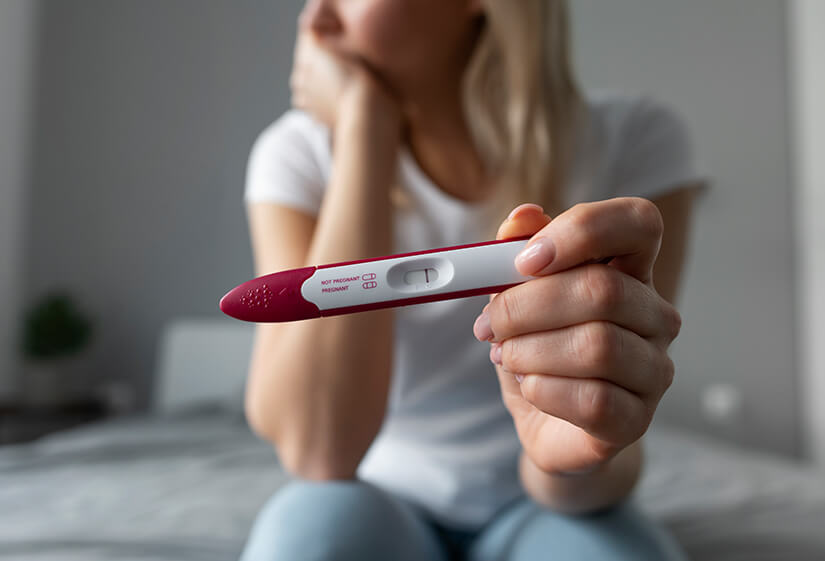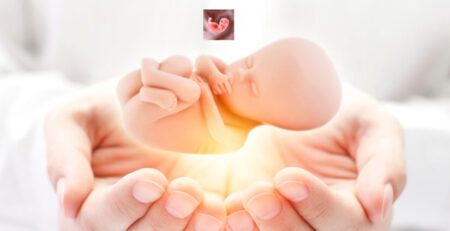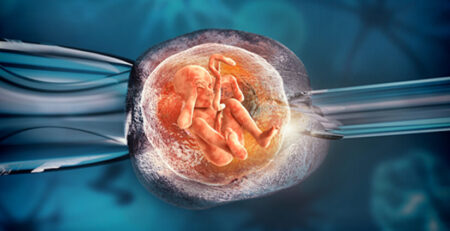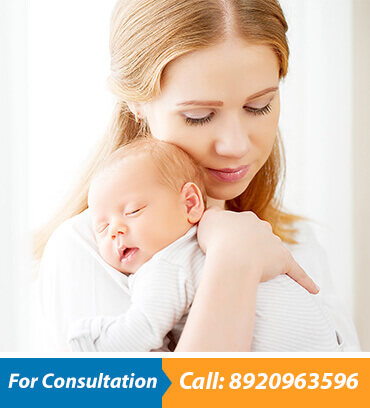Home Pregnancy Test After IVF Embryo Transfer
In vitro fertilization, or IVF treatment, is a beacon of hope for numerous couples trying to start a family amidst fertility challenges. This complex journey involves several steps, from the initial decision to embark on IVF to bringing the kid into the world. One of the most important steps in this journey is the first pregnancy test. But when should you take this test? What are the factors that can affect the results of the test?
When to Test for Pregnancy After IVF?
IVF procedure involves collecting eggs from female body, fusing with sperms making embryos in the lab. These embryos grow maximum upto day 5 or day 6. They can be transferred at any stage from day 3 tp day 6 .
Based on the stage and day of embryo transfer day 3 or 5, the timing of a pregnancy test post-IVF is determined. For example, if a Day 3 embryo is transferred, the pregnancy tests are usually conducted about 11 after transfer. And if a blastocyst, i.e. Day 5 embryo is implanted, the test window narrows to 9 days post-transfer. But why is this timing important? Because if you undergo the pregnancy test early, you may get false negative results.
The Role of Home Pregnancy Tests
Home pregnancy tests offer a convenient first step in detecting pregnancy after embryo transfer. These tests can be done with the pregnancy test kit. Now, you might be wondering how these tests work. They work by identifying the presence of beta HCG. Beta HCG is produced by the cells surrounding a developing embryo shortly after fertilization and implantation into the uterine lining. The hormone’s primary role is in estrogen and progesterone secretion from ovaries to maintain the uterine lining and ensuring a suitable environment for the developing embryo.
If we talk about the IVF treatment, beta HCG is detectable in blood tests a week after implantation and rises gradually and is then detected in urine approximately 10-12 days after embryo transfer. Its early presence helps indicate the embryo is successfully implanted, and pregnancy is established. The sensitivity of pregnancy test kits is crucial; they are designed to detect beta HCG levels of 25 mIU/ml or higher.
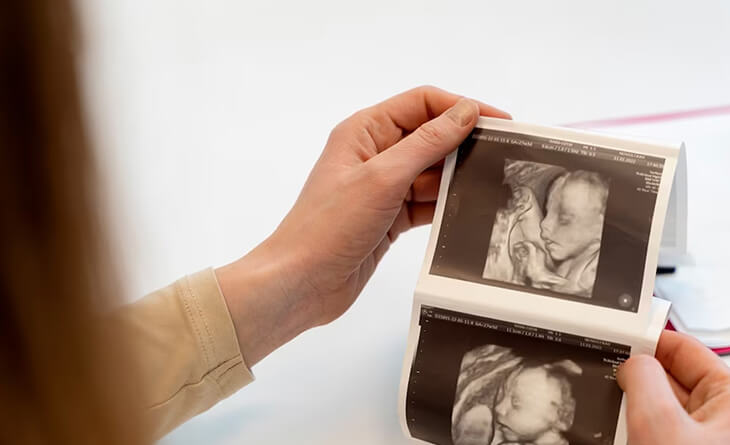
How to Understand Beta HCG Level?
Beta HCG levels are super important when it comes to confirming pregnancy and checking if everything’s going smoothly. You can expect these levels to go above 5 mIU/ml in about 5 to 6 days after embryo transfer, and they should keep doubling every two days. If there is suboptimal rise, it may indicate ectopic pregnancy or abnormal pregnancy.
If you are using a home pregnancy test, the best time to check is when these levels hit around 100 mIU/ml, usually a couple of days before you have missed your period. This gives you a sneak peek at how the pregnancy is going. But, it is good to remember that home pregnancy tests are not always 100% reliable. Things like how much beta HCG is in your system, if you are taking supplements like biotin, or even if the test kit was not stored right can mess with the results. You must visit the IVF centre in Delhi for the pregnancy test.
False Positive and Negative Results
While home pregnancy tests give you hope, they do not provide the exact results. Sometimes, they might not show a pregnancy (false negatives) if your HCG hormone levels are too low, or surprisingly, even if they are really high.
Also, certain medications you might be taking, or other health conditions that release HCG can mess with the results, making them a bit unreliable. That is why following up with more tests, especially blood tests that directly check your beta HCG levels, is super important. These tests give us a clearer picture of whether the pregnancy is going well and how it’s progressing.
How Long After IVF Do You Find If You Are Pregnant?
Figuring out if you are pregnant after IVF treatment is not always easy. The symptoms of PMS (premenstrual syndrome) mimic those of pregnancy such as breast tenderness, cramps, heaviness, mood swings etc. Hence it is important to differentiate between the two, a pregnancy test is undertaken. Typically, you are advised to get a hCG blood test around 10-12 days after the embryo transfer. This is to give the embryo time to settle in your uterus and start making the pregnancy hormone, hCG, which the test looks for. The wait for these test results can be extremely stressful, but it is key to remember that everyone’s experience is different, and outcomes can vary.
However, many couples try to keep an eye out for any sign their body might give them about being pregnant before that. But, identifying IVF pregnancy signs may be difficult, and they can occasionally throw you off track.
They might notice some light bleeding or spotting, possibly from the embryo settling in or just a side effect of their treatments. Cramping is another symptom that might make them pause; it can happen when the embryo implants, but it can also just be from fluid buildup around the ovaries, causing bloating and tenderness. Then there are signs like nausea or feeling super tired, which could be due to a bunch of other things in their life, the IVF treatments, or early pregnancy.
So, any symptoms you feel could hint at pregnancy, or they might not mean much. And yes, it is possible not to feel any early pregnancy signs and still be pregnant!
What Should You Do Between Embryo Transfer and Pregnancy Tests?
While waiting to see if your IVF has been successful, looking after yourself is key, both in body and mind. Here are a few steps you can take to take care of yourself during this waiting period:
- Take It Easy: Now is not the time for running marathons or moving furniture. Keep activities light and easy to avoid putting unnecessary strain on yourself. Think of it as giving your body the space it needs to start maybe growing a tiny human.
- Keep Calm: Stress is not your friend at this moment. Research supports the premise that feeling supported and relaxed might improve your chances of IVF treatment
- Meditation and Gentle Yoga: When it comes to being calm, meditation and yoga are like relaxation warriors. They are ideal for promoting inner peace and reducing stress. They are also beneficial to your physical health.
- Follow Your Doctor’s Advice: Your fertility doctor provider knows what’s going on, so make sure you take your prescribed medications as directed and follow all their advice. They are a crucial part of your support team.
- Reach Out When You Need To: Do you have any questions or concerns after embryo transfer? Your fertility doctor is there to help, so don’t hesitate to reach out. They can offer the reassurance or information you need to feel more comfortable.
- Surround Yourself With Positive Vibes: Having a supportive network of family and friends can make a difference. Whether you need a shoulder to lean on or just someone to take your mind off things with a good movie or a laugh, make sure you’re keeping your loved ones close.
Remember, this waiting period is just one part of your journey, and taking care of yourself is the best thing you can do as you navigate this path. Keep things light, stay hopeful, and don’t forget to consult your doctor at the best IVF centre in Delhi.
What If the IVF Pregnancy Test is Negative?
If you get a negative result on your IVF pregnancy test, it means that the embryo didn’t manage to implant in the uterus, and as a result, you are not pregnant at this moment. Hearing this news can be tough and might stir up many emotions. It is completely okay to feel sad, frustrated, or even angry; it’s all part of the journey, and you can process these feelings in your own time.
But here’s the thing: this is not the end of the road. Your fertility specialist is there to help you. They will figure out what the best plan is moving forward. They might suggest trying another round of IVF treatment because sometimes it is just a matter of trying again. Or, they might bring up other options that could work for you, depending on what makes the most sense for your specific situation.
It is important to hold onto hope and remember that a negative result now doesn’t close the door on your dream of having a baby. The path to parenthood is different for everyone, and sometimes, it takes a few tries or exploring other methods to get there.
Wrapping Up!
While the path to parenthood is through IVF treatment can be filled with uncertainty and emotions, understanding the aspects of pregnancy testing after IVF, from the timing of tests to the significance of beta HCG levels, empowers couples on their fertility journey.
If you are looking for fertility treatment, schedule your consultation with Dr Rhythm Gupta to fulfill your dream of parenthood.

